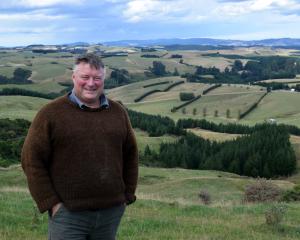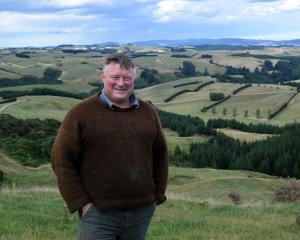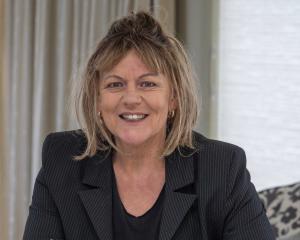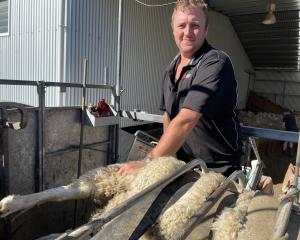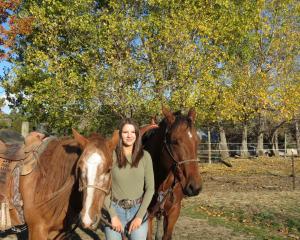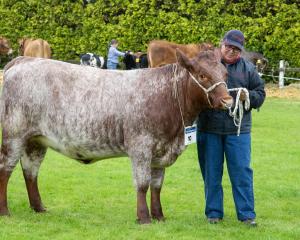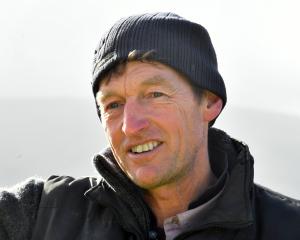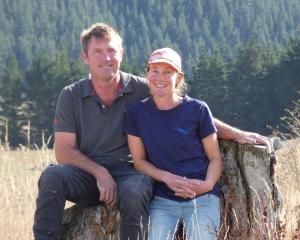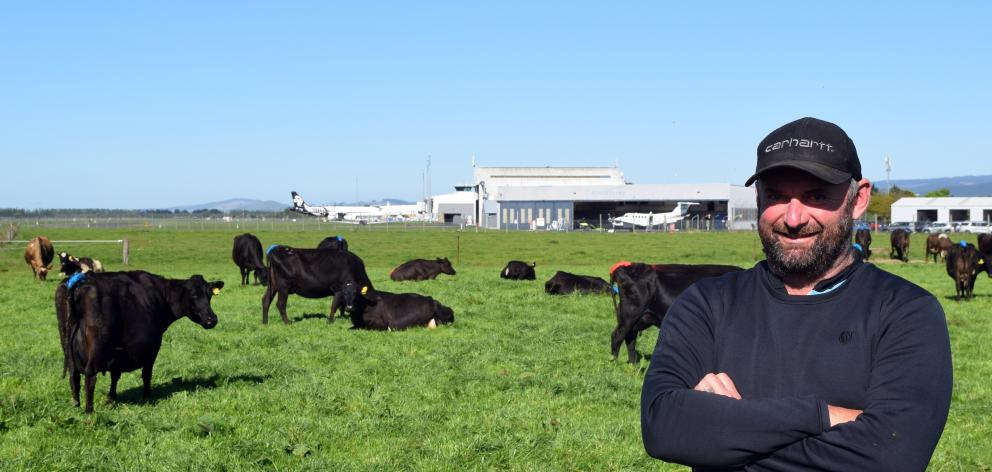
Adversity is a great teacher on how to farm smarter, Taieri 50:50 sharemilker Hamish Jenkins says.
He and his team milk 570 cows on the 168ha flat farm surrounding Dunedin Airport in Momona.
The government and the Dunedin City Council have an equal share in the ownership of the airport, including the farm.
He launched his sharemilking career on the airport farm 12 years ago and had no intention of farming anywhere else.
"I’ll stay here until I’m done."
To be a sharemilker, he saved money by contract milking to buy budget cows from Stafford Ferguson in Milton, whose herd was in the top 5% of New Zealand.
The "fair deal" allowed his sharemilking career to take off.
"In this game, everyone needs a helping hand and you’re away, but it is really hard to get that helping hand. You never look back when you get your opportunity."
The budget cows were still able to "smash out" 450kg of milksolids (kgMS) per cow.
At the beginning, he only had enough cows to milk on 91ha of the farm but he took on the remaining 77ha after five years on the job, as his herd numbers increased.
Last season, he achieved a record production of 280,000kgMS, a lift in production of 100,000kgMS on the two farm blocks since he had started working for the airport.
The reasons for the lift in production included a focus on pasture management and being able to feed his cows palm kernel and dried distillers grain in the 24-bale herringbone milking shed.
His sharemilking career had a bumpy start after the milk price dropped to $3.90 per kgMS in the 2014-15 season.
"It was terrible, it was costing us to make milk. It was the worst year ever."
At the time, the breakeven point was about $5 per kgMS.
Cow prices also plummeted.
"It was basically, works price. I sold all my late calving cows to the works."
His bank at the time was "brutal" and refused to lend him any money.
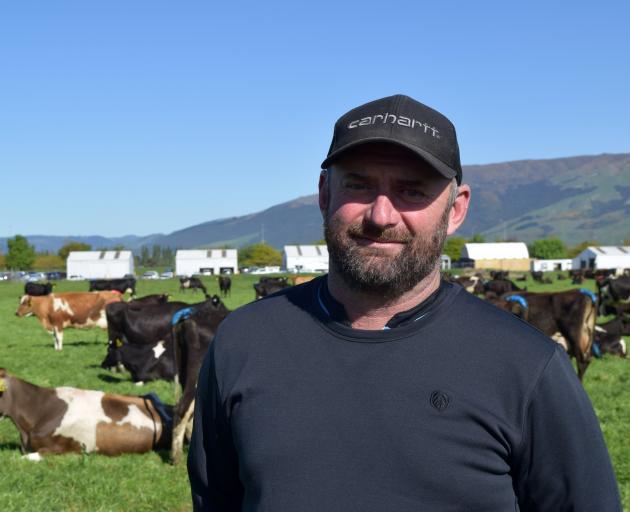
The only money the bank would give him was by refinancing his tractor, which he had recently paid off.
As he and his wife Jody had just started sharemilking, they were "in debt up to [their] eyeballs".
"We lost half our equity and half our income overnight. It was really tough."
Despite Jody working off farm and putting her wages in the farm business, he had to lay off staff and stop paying himself a wage.
"It was so bad."
Dunedin Airport helped him by paying for some of the farm costs.
"They didn’t give me any money but they were prepared to share some of those costs that were mine, which was really good."
When he started on the farm, the annual budget allowed for the application of 350kg of superphosphate per hectare.
"It never got changed and we threw it on."
A different approach to fertiliser application came following the 2014-15 season.
"The blanket approach of just throwing it at it was just wasting money. It took the $3.90 year to click on to that."
Now the soil on each paddock was tested and fertiliser was only applied where it was needed.
"It is saving us lots of money. There’s no point throwing fertiliser at it while our nutrient levels are in the optimum level or above it."
The plan this season was to only apply fertiliser on the grass surrounding the runway after it was cut, as it was the only part of the farm which did not get any nutrients from the cows.
He never considered selling his herd in the 2014-15 season.
"I’d just got my dream, I’d just bought my herd of cows. It was all I ever wanted so I thought b..... the bank and knuckled down and did everything I could and we got through."
In hindsight, a positive of the bank refusing to lend him money was not needing to pay it back.
About two seasons after the dire year, he was in a position to buy another herd.
This season, when the milk price dropped to $6.80 per kgMS, the 2014-15 season helped keep the drop in perspective.

When the milk price dropped this season, he altered his business plan from being "aggressive at paying back debt" — about $150,000 a year in principal — to changing to interest only repayments for six months so he could keep all his staff on and be able to pay to establish crops and mate his herd.
"It gave me breathing space early ."
Having a conversation with the bank manager early on to find a solution was easier than calling them down the track asking to borrow money to pay wages, he said.
He had entered the Dairy Industry Awards twice before, as a contract milker and sharemilker, and he recommended the experience to dairy farmers.
The competition was an "awesome" way to find where your business was at.
"Leading up to that, all I wanted was to be on the farm and I didn’t know my business — it taught me a lot about my business. Measuring stuff is really important; if you don’t know, you are guessing. "
If a farmer knew their business, a bank would be more likely to lend them money, he said.
He liked to keep things simple, including his cropping.
A 10ha crop on the farm won the direct-drilled kale category at the 2023 Taieri Winter Crop Competition and Charity Auction.
To produce the crop, he sprayed the perennial rye grass in the paddock with Round Up, took it off for baleage, and direct drilled Cleancrop kale seed and applied 100kg of urea.
The crop produced about 19 tonnes.
"With the fertility we have here, we are able to grow, big, big crops with no expense."
He found direct drilling produced a crop which held together, resulting in less pugging of the soil in wet weather.
After the kale was eaten, the paddock was returned to a perennial rye grass.
"I don’t put a catch crop in — I don’t see a lot of value in that."
About 400 cows were wintered off-farm on fodder beet.
He has no aspirations at farm ownership because he has no desire to take on more debt, deal with increasing regulations and face the negativity towards the dairy industry, despite it feeding plenty of people and constantly improving in how it operates.
"I’m happy where I’m at and I don’t need that in my life. I’m further ahead than I ever thought I was going to be."



